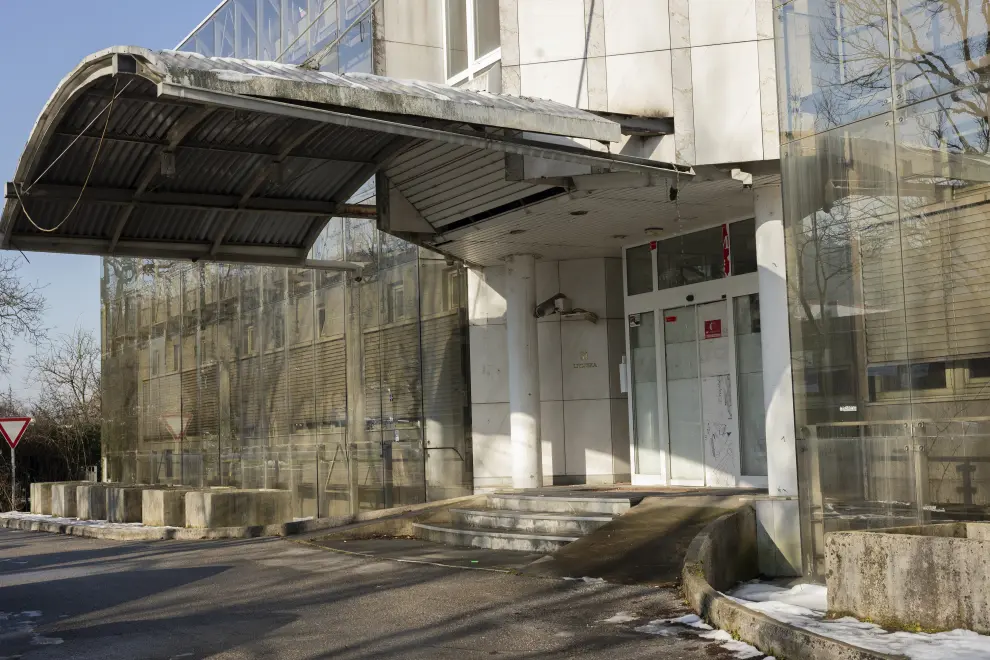Audit confirms serious flaws in two govt projects
The Court of Audit has found that a number of rules have been broken in two government projects that have been raising controversy in Slovenia for months over wasteful spending of the taxpayers' money.
The country's top auditing authority reviewed the €7.7 million purchase of a run-down building to provide much needed space for courts and the procurement of 13,000 laptops meant to promote digital inclusion as part of a broader audit report of the 2023 national budget for which it issued a qualified opinion.
The findings were released on 4 September after being leaked to the media some two months ago and after both acquisitions have been keeping politics and the media busy for months.
The court building scandal swept away the previous justice minister, Dominika Švarc Pipan, and ultimately led to change at the helm of the Social Democrats as Economy Minister Matjaž Han succeeded Foreign Minister Tanja Fajon, while Digital Transformation Minister Emilija Stojmenova Duh is facing a second opposition-sponsored vote of no confidence over the laptop purchase, having survived the first one in March.
All checks at Justice Ministry found to have failed
The audit report found that the Justice Ministry bought the ill-fated building, which has turned out not to be suitable for court premises, at the end of 2023 even though it had not pre-planned the purchase and the Finance Ministry incorrectly reallocated funds to provide the money for it.
Court of Audit President Jana Ahčin said the "original sin" lied with the Justice Ministry, where all the checks failed.
The ministry set out to buy the building without having money allocated for it, without having inspected the premises and without taking into account the cost of renovating the building, which is in a bad state of repair.
The ministry did not order for the price of the building to be checked before the purchase or sought the opinion of the State Attorney's Office as required for such large projects, but accepted the appraisal that had been commissioned by the seller.
It bought the building, located on the eastern outskirts of Ljubljana, from a businessman who paid €1.7 million for it in 2020. An appraisal commissioned by the State Attorney's Office in April 2024 estimated the market value of the building when the ministry signed the contract to buy it at €6 million.

The building in Litijska Road that the Justice Ministry bought for EUR 7.7 million to house three courts. Photo: Bor Slana/STA
The court found that the Finance Ministry violated legislation by securing €6.5 million for the purchase by redistributing funds from the general budget reserve for an outlay that could have been earmarked in the national budget, so there was no basis for such redistribution.
The Finance Ministry issued a written response saying the assessments of what constituted unforeseen outlays as a rule differed between the Finance Ministry and the Court of Audit.
"The Finance Ministry is committed to ensuring that the daily needs of citizens, state bodies and institutions are met, and it makes its daily decisions in accordance with the realistic budget capabilities and proposals of individual departments," it said.
Meanwhile, Andreja Katič, who took over as justice minister in March, said the system of managing such large investments should be changed. She also believes the ministry decided too quickly to suspend plans for the construction of a new court building.
The purchase of the building in Litijska Street is being investigated by the National Bureau of Investigation on suspicion of abuse of office where the suspects allegedly made at least €3.4 million in unlawful gains.
Laptop purchase uneconomical
The Court of Audit also found that the €6.5 million procurement of 13,000 laptops by the Ministry of Digital Transformation in 2023 went against the principles of efficiency and economy.
The auditors found that the ministry decided for the purchase without having set out the needs as to how many computers were needed and for whom.
Since laptops are a type of equipment that becomes obsolete fast, they should have been distributed as soon as possible, but this was not possible as the legal basis for the distribution had not been in place on time.
The regulation governing the distribution of the laptops was supposed to be adopted after the passage of the 2022 Act on the Promotion of Digital Inclusion, but the ministry did not draft it until 2023.
As it turned out that the number of those eligible for the laptops would be too high, the ministry opted instead for changes to the law, which were passed in spring 2024, after the laptops had been purchased.
The laptops were delivered in September 2023 but only 39 had been handed out by the end of the year; a few thousand were handed out to students so far this year in two open calls, while a third call is ongoing where the eligibility criteria have been expanded.
The Court of Audit says the delays resulted in warehousing costs, while the one-year guarantee on the laptops has already expired.
Minister Stojmenova Duh argues that the legal basis has been prepared on time, and legislative amendments put in place and that the ministry ascertained what the actual needs for the computers were.
Commenting on the allegation that the laptops are getting outdated, she offered a comparison: "If a person without a car gets a five-year old car, they can still use it ... the same holds true for laptops."
Even if such equipment is meant for the poorest, it does not justify reckless spending, Court of Audit President Ahčin said. "Would you buy this at home and store it for a year or more without knowing why you have bought it?"
She noted that there were still some 10,000 laptops in the warehouse today waiting to be distributed as eligible candidates were being sought, which came at a cost of €5 million.


